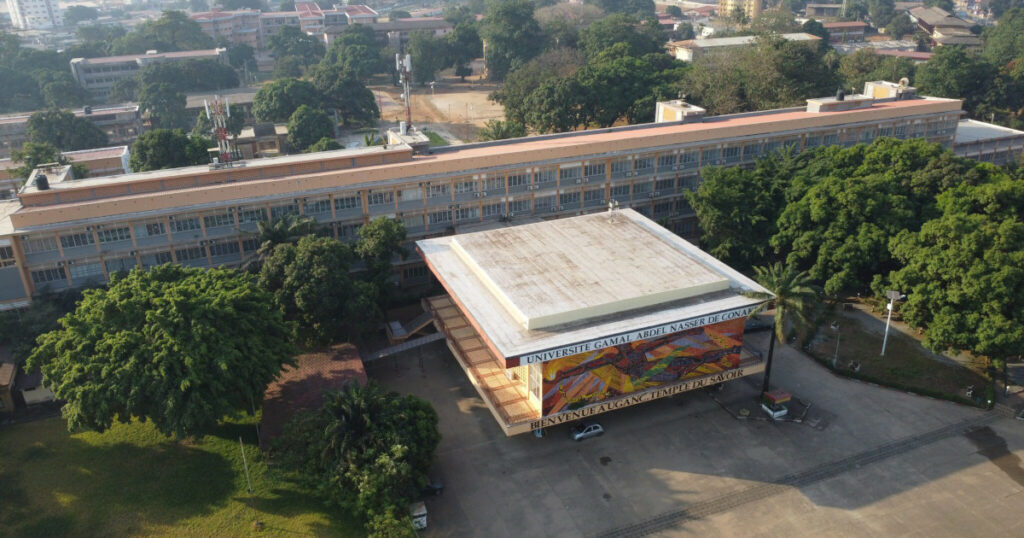As highlighted in the previous issue of APN, this article seeks to share the journeys of African scientists who have overcome significant challenges to excel in their fields
Dr. Mounia Laassiri is one such scientist whose passion for nuclear physics was sparked during her high school years in Morocco. Despite societal pressures and limited resources, Dr. Lassiri’s determination has led her to achieve remarkable success in the world of nuclear physics and computer science.
Paving Her Own Path to Discovery in Physics
Mounia was born in Morocco, where she grew up in a commuter town across the bridge from Rabat, the country’s capital. As a child, she experienced a rich communal environment where the local kids didn’t have ready-made toys. Instead, they used whatever they could find to create games and adventures.
This was how she learned the value of community, a value deeply embedded in African philosophy through the concept of “Ubuntu,” which means “I am because you are, and you are because I am.” Being the first female child in a Moroccan family, Mounia was constantly faced with societal pressures, but wanted a life where she could contribute to her society in several ways – having a good personal life and making impacts in society both as a mentor and an academic.
Fueling Curiosity: From Classroom Challenges to a Career in Physics
Mounia’s academic journey wasn’t always smooth, but her curiosity for science propelled her forward. In primary school, her interest was initially in mathematics. However, it wasn’t until secondary school that she developed a serious interest in physics.
Her understanding of physics was limited at first; she thought it might be related to cars or mechanics, but as she dug deeper, she realized it was much more. Education in Morocco also presented some challenges. The teaching of physics was heavily theoretical, with little access to hands-on experiments due to lack of equipment.
Despite this situation, Mounia’s passion grew. She was one of the few students who chose to pursue the physical sciences track in high school, even convincing more than 80 classmates to follow suit just so the school would create a dedicated class for them. When the administration mistakenly placed her in the natural sciences class, she fought to be moved to physical sciences.
By the time she finished high school, her path was clear; physics had captured her imagination, and she knew that was the field she wanted to dedicate her life to. She completed her undergraduate and Ph.D. studies at Mohammed V University in Rabat, specializing in nuclear physics, and continued her research with international collaborations.
From Student to Leader
Mounia’s journey with the African School of Physics (ASP) started when she was selected to participate in the fourth school (ASP2016) in Kigali, Rwanda. This journey has indeed been beneficial to her and the advancement of the ASP’s mission. Engagements with and subsequent mentorship by ASP2016 lecturers have sustained and extended Mounia’s interests and expertise in detector simulation and performance studies, and research in nuclear physics and instrumentation.
She has remained engaged with ASP through mentorship and support for her Ph.D. thesis. Upon the conclusion of her thesis defense, she was among nine ASP alumni selected for the inaugural short-term research visit program to Brookhaven National Laboratory (BNL), and was also the first alumna invited to report on ASP at the American Physical Society (APS) Division of Particle and Fields meeting in 2019 in Boston.
In addition, she worked with the BNL Electronics Detector Group by constructing a dedicated system to calibrate the field response functions for the wire-readout-based single-phase Liquid Argon Time Projection Chamber. She also collaborated with the University of Johannesburg on the modeling of nuclear reactors with Geant4.
From Brookhaven to Helsinki
In 2022, she acquired a post-doctoral position at the Helsinki Institute of Physics, where she worked on performance studies of passive gamma emission tomography devices. From 2023 to early 2024, she collaborated closely with BNL on different projects, including researching the usage of cadmium-zinc-telluride and germanium detectors for position-sensitive gamma-ray detection for 3D imaging.
During the COVID-19 pandemic, Mounia contributed to ASP online events and, during ASP2022, she was invited to lecture on Monte Carlo event generation and detector simulation. Afterward, she was appointed to the ASP International Organizing Committee (IOC), led the organization of the third African Conference on Fundamental and Applied Physics (ACP2023) and the eighth African School of Physics (ASP2024), and was also appointed an Editor of the African Physics Newsletter. Mounia’s work has received global recognition, and she has been invited to speak at APS March Meeting sessions.
Extending physics outreach to marginalized groups
Mounia is also extending physics outreach to marginalized groups and minority serving institutes in the U.S. and to open house community outreach at BNL. She is presently a postdoctoral fellow at BNL, where she has worked on the construction and performance studies of the ATLAS Inner Tracker upgrade (ITk), bringing the experience she has accumulated in nuclear physics on detector design, simulation, testing, building and performance studies to the BNL team.
Mounia has also been involved in physics research impacting detector upgrades for High Luminosity LHC (the future of the Large Hadron Collider). Additionally, she is an elected member of the executive committee of the APS Forum on International Physics (FIP).
Despite the challenges faced, such as limited resources and post-doctoral positions, Mounia remains optimistic about Africa’s future and hopes to continue mentoring the next generation of African physicists.
Jesutofunmi Ayo Fajemisin, University of South Florida, U.S., Mary Opeyemi Olusesi, University of Ibadan, Nigeria
This article has been published by the African Physics Newsletter in April 2025. It is reproduced with the authorization of the American Physical Society.




